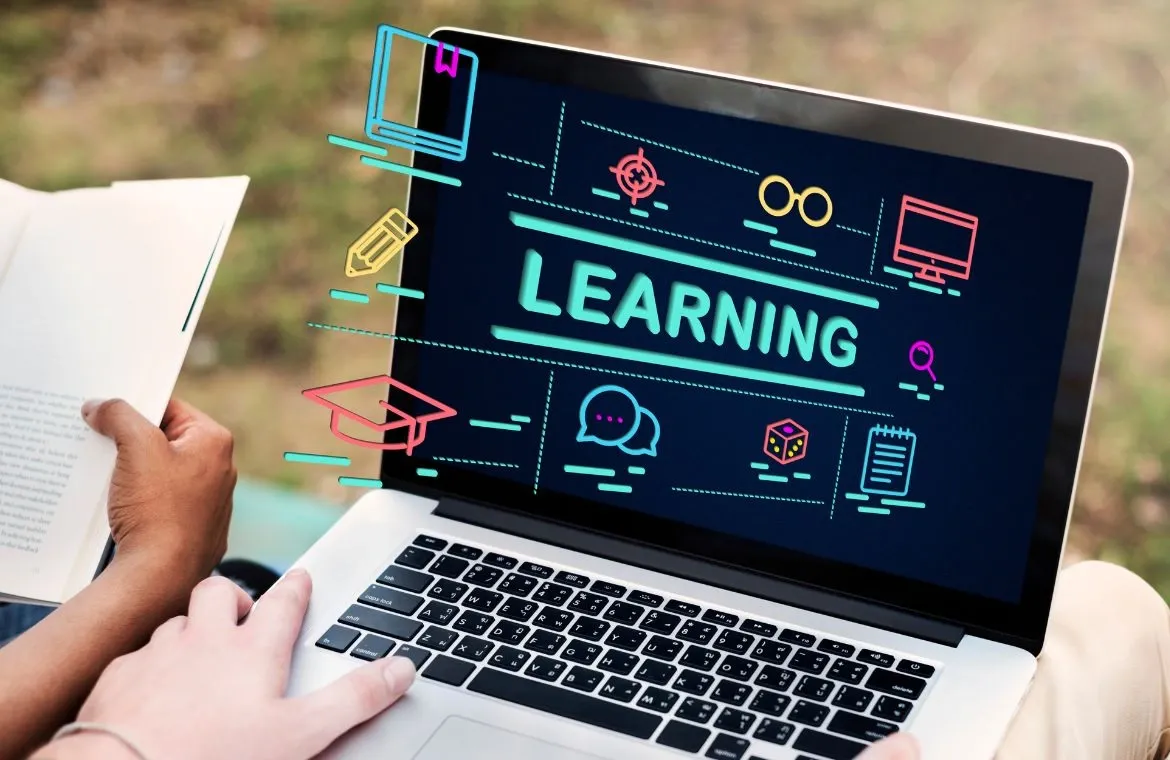How to Learn AI the Right Way

What is Artificial Intelligence? - Many of you would answer it like this - Artificial Intelligence (AI) is a powerful technology that allows computer systems to perform tasks that usually require human intelligence.
However, I would explain it in another way. AI is like fire; it will either illuminate your path ahead and make things easier for the users or consume those who fail to understand its power. You may ask, how do you control this fire? The key here is to learn AI skills to gain the expertise to harness AI’s power.
There are many courses, bootcamps, and institutions offering AI and machine learning courses, but the real question is - does it really matter where or how you learn AI skills? Today, we’ll explore this very question.
Art of Learning AI the Right Way
There are many ways to learn AI, and in the age of the internet, YouTube videos and other tutorials available on Google are what most people rely on. However, can binge-watching some online videos really help?
AI is definitely not a historical topic that you can memorize or a science concept that you can understand by watching demonstrative videos. It is like learning swimming - to learn it, you need to dive in. Believe me when I say this: You can’t learn AI if you don’t apply what you have learned. This answers our question: The best way to learn AI is through hands-on experience or real-life applications.
Interactive learning sessions, mentorship, and structured learning play an important role in the learning process of AI professionals. Basically, your learning process should combine these features - structured learning, case studies, real-world projects, and hackathons to apply your skills to real-world problems.
As per the McKinsey report, the best way to bridge the gap between humans and artificial intelligence is by combining classroom learning and real-world applications.
Does the Institute Really Matter?
There is only one word for this question - YES!
Prestigious institutes can provide you access to world-class faculty, top research, and better tools and resources. This translates to better skills and career opportunities. However, it’s not just about the brand. Your institute should offer you the following:
- Great Mentorship
- Industry Exposure
- In-Depth Learning with a Structured Curriculum
- Tools and Resources
- Capstone Projects
So, it clarifies your doubts!
You should always go for the institute that not only provides theoretical knowledge but also gives you access to real-world projects to apply your skills practically and industry exposure to enhance your network.
Why Do Professionals Prefer Top AI Programs?
Here’s why tech professionals often gravitate towards the top-tier institutes:
Industry Recognition
When you complete your course, you get alumni status from these institutes. Many companies prefer recruiting AI professionals only from top-tier institutes. So, if you wish to join a reputed and high-paying company, choose AI courses offered by top-tier institutes.
Access to Advanced Research
AI is evolving at a lightning-fast pace, and top institutes often have the best research labs and researchers. So, students from these institutes often benefit by getting first-hand exposure to the latest trends and updates in the AI world.
Hands-On Experience
These institutes focus more on practical knowledge than theoretical knowledge. Thus, students spend more time carrying out projects, which provide them the opportunity to apply their knowledge practically. This improves their experience with the technology and prepares them for real-world jobs.
Networking Opportunities
Studying in top-tier universities offers students the opportunity to meet the best faculty and industry professionals. In this way, they get opportunities to improve their professional network.
AI and Humans: Partnership, Not Replacement
If humans are birds, AI is wind. Though birds have wings to fly, the wind just makes it easy to make the flight. However, if there are no birds, then what’s the point of wind?
We must understand that AI is here to make our work easier and not to replace humans in the job market. What is important is to learn how to collaborate with AI and use it to its full potential to ensure smart work. As noted by Fei-Fei Li, one of the pioneers of AI, “Artificial Intelligence is not about replacing humans… It is about augmenting human capabilities”.
If you smartly use AI, you can open up new opportunities for yourself. You can increase your productivity and contribute better to your organization.
Key Takeaways
For those considering the AI profession, here are some tips:
- Consider structured learning over scattered tutorials
- Don’t just memorize, but apply AI
- Focus on improving your professional network
- Stay updated
The future of AI belongs to those who are ready to master it. So, stop resisting AI; the more you accept and embrace it, the better the chances are of improving your AI skills.
If you’re still confused about the courses to consider for enhancing your AI skills, here are some suggestions:
- AI and Machine Learning | IIIT Hyderabad - Master AI/ML skills with top-tier faculty and real-world applications.
- AI and Autonomous Systems | IISc - Learn about AI-driven automation and autonomous systems with expert guidance from IISc
- Generative AI and Prompt Engineering | IISc - Learn Generative AI and master Prompt Engineering with industry-relevant curriculum by IISc.
- AI for Leaders | IIM Calcutta - Designed for leaders to harness the power of AI and up their decision-making game to improve business strategy.

TalentSprint
TalentSprint is a leading deep-tech education company. It partners with esteemed academic institutions and global corporations to offer advanced learning programs in deep-tech, management, and emerging technologies. Known for its high-impact programs co-created with think tanks and experts, TalentSprint blends academic expertise with practical industry experience.



